Is the Church ready for Pope Francis? What did he say to the young people in Singapore?
The narcissism of theologians is an ecclesiastical disease that does much harm
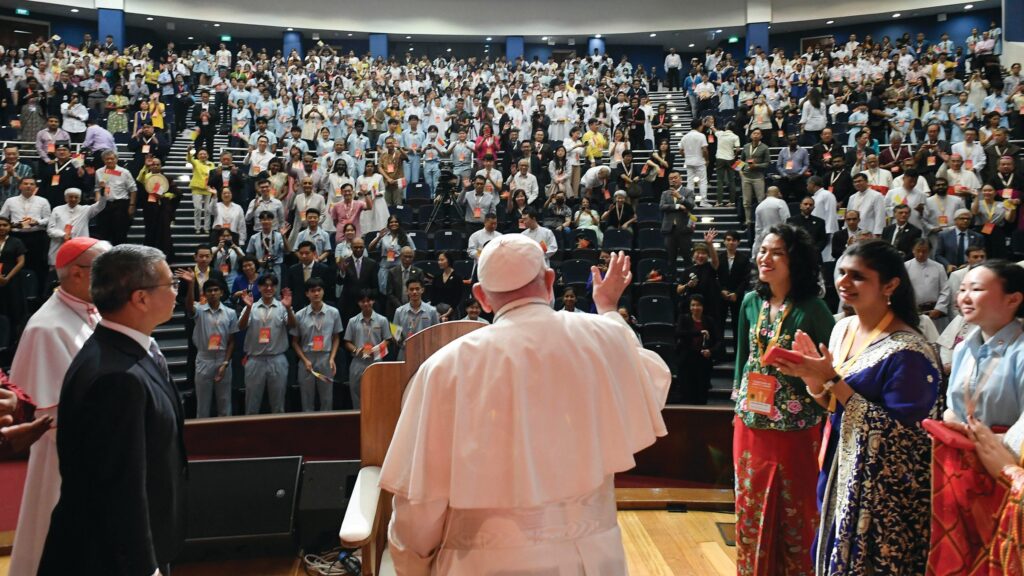
While Catholics in Indonesia, Papua New Guinea, East Timor and Singapore are celebrating the visit of Pope Francis as a special grace granted to them by Divine Providence, a swarm of Catholics in the West are tearing their hair out over a phrase expressed by the Pope in an interreligious dialogue meeting. This reaction calls into question once again the objective value of theology degrees, when the theologian does not have the humility to go down to the grassroots to be a pastoral theologian who understands contexts.
What did Pope Francis say to young people of different religions in Singapore?
These are the Pope’s words that generated controversy:
“One of the things that has impressed me most about the young people here is your capacity for interfaith dialogue. This is very important because if you start arguing, ‘My religion is more important than yours…,’ or ‘Mine is the true one, yours is not true….,’ where does this lead? Somebody answer. [A young person answers, ‘Destruction’.] That is correct. All religions are paths to God.
I will use an analogy, they are like different languages that express the divine. But God is for everyone, and therefore, we are all God’s children. ‘But my God is more important than yours!’. Is this true? There is only one God, and religions are like languages, paths to reach God. Some Sikh, some Muslim, some Hindu, some Christian. Understood? Yet, interfaith dialogue among young people takes courage. The age of youth is the age of courage, but you can misuse this courage to do things that will not help you. Instead, you should have courage to move forward and to dialogue.”
Are we ready for Pope Francis?
And here my question…are we ready for the message of Jesus through Pope Francis? After so many centuries of exacerbated intellectualism, the Pope brings down the theology of the clouds to a simple pastoral theology of gestures. He is accused of not having a theological level, but he demonstrates that the wisest is the one who does not have to prove anything. Francis disguises his intellectual level in a smile, in a hug, and in words that will be branded as heresies by those who think they are wiser.
How easy it is to repeat what has always been said, and how risky it is to advance with the steps of a prophet, knowing that walking encyclopedias will not understand anything, because “everything is already written,” and “it is not in the doctrine.” It is as if they had made a pact of honor: “From here we will not move,” inviting the Holy Spirit to rest, because they already have everything clear. The most staunch papists have become his main detractors, while those who have always had a humble and filial spirit before God, have this spirit before every pope.
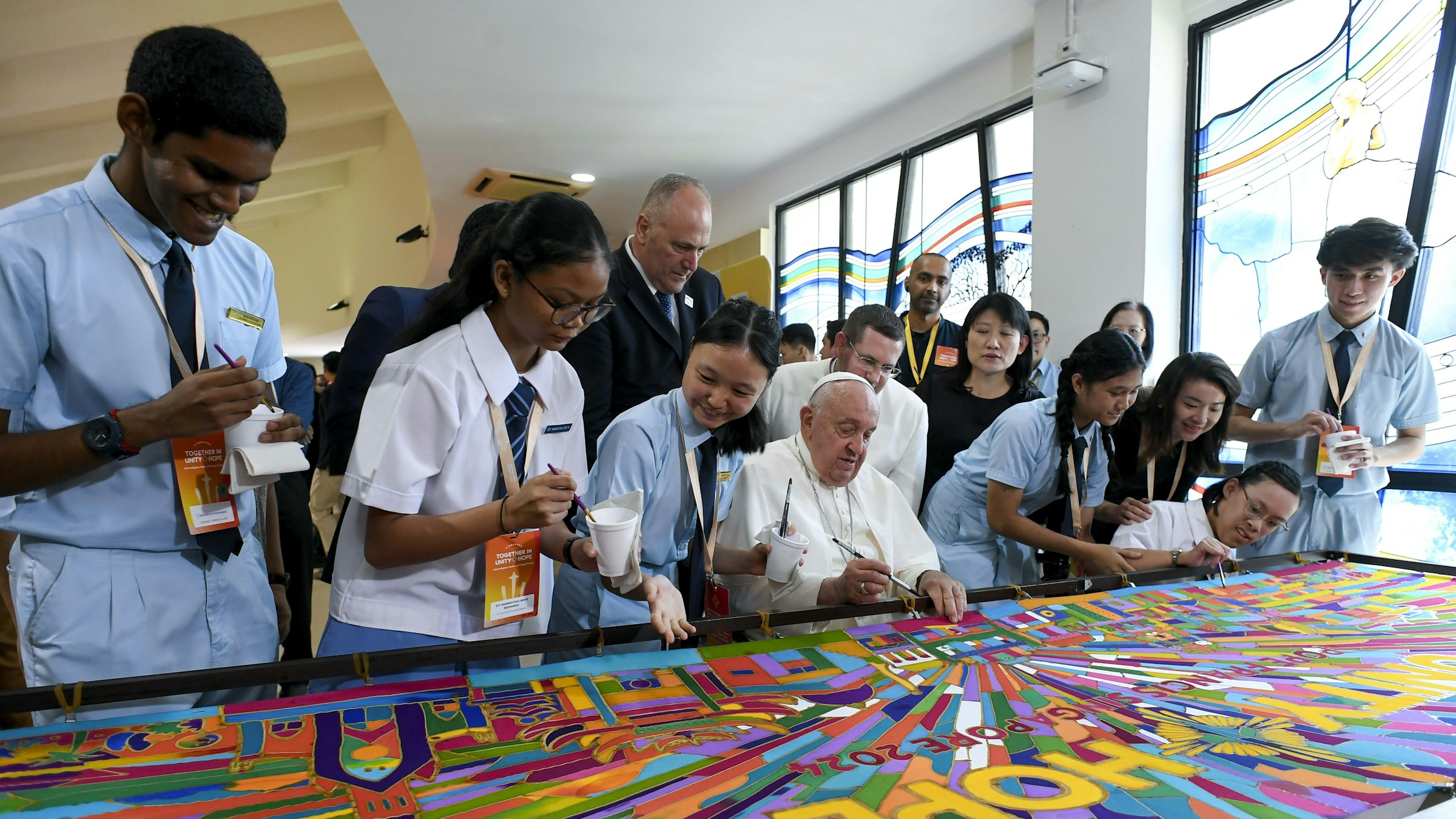
Context of the “heresy” of Pope Francis
It is with great sadness that I will give a brief explanation of the Pope’s words at the meeting with young people of various religions in Singapore. I say “with great sadness”, because I do not delight in explaining the obvious. But here we go. First of all, as a Christian, I would be honored to have members of other religions approach a Christian. That would deeply motivate me to be very faithful to the basic principle of dialogue, which is to integrate everything that can be integrated. Then I would express what we have in common. “Our religions are paths to God.” This scandalizes the library intellectualist, who always knows best what the Pope should have said.
But the fact is that all religions have good things, and all good things lead to God, whether it is a millimeter or kilometers. That is easy for a child to understand. A “wise man” does not. “I praise you, Father, Lord of heaven and earth, because you have hidden these things from the wise and learned, and revealed them to little children” (Mt. 11:25). But they don’t think it is addressed to them.
It should be noted that Francis never said that religions are equal paths to God. During his long journey he did not fail to make it clear at every moment that Jesus is the Way, the Truth and the Life, to whom he is consecrating his life.
The light of the Magisterium of the Church, hidden from the “wise”
A simple and humble soul does not need to go constantly in search of constitutions and bulls to know the breadth of God’s infinite love. But it is good for all of us to have access to Church documents that enlighten us on topics that cause doubts for some, but for others, this serves to mark their presumed intellectual superiority, causing scandalous divisions in the Body of Christ.
We will share here three texts that shed light on the presence of God in people:
The Catechism of the Catholic Church, #847 states, “Those who, through no fault of their own, do not know the Gospel of Christ or his Church, but who nevertheless seek God with a sincere heart, and, moved by grace, try in their actions to do his will as they know it through the dictates of their conscience – those too may achieve eternal salvation.”
The Second Vatican Council, for its part, teaches in the Declaration Nostra Aetate, #2, that “the Catholic Church rejects nothing that is true and holy in these religions. She regards with sincere reverence those ways of conduct and of life, those precepts and teachings which, though differing in many aspects from the ones she holds and sets forth, nonetheless often reflect a ray of that Truth which enlightens all men. Indeed, she proclaims, and ever must proclaim Christ “the way, the truth, and the life” (John 14:6), in whom men may find the fullness of religious life, in whom God has reconciled all things to Himself.”
Also those who do not know God may be saved
On the salvation of non-Christians, the Second Vatican Council affirms in the Constitution Lumen Gentium, # 16, that “those who have not yet received the Gospel are related in various ways to the people of God. In the first place we must recall the people to whom the testament and the promises were given and from whom Christ was born according to the flesh. On account of their fathers this people remains most dear to God, for God does not repent of the gifts He makes nor of the calls He issues. But the plan of salvation also includes those who acknowledge the Creator. In the first place amongst these there are the Muslims, who, professing to hold the faith of Abraham, along with us adore the one and merciful God, who on the last day will judge mankind.
Nor is God far distant from those who in shadows and images seek the unknown God, for it is He who gives to all men life and breath and all things, and as Saviour wills that all men be saved. Those also can attain to salvation who through no fault of their own do not know the Gospel of Christ or His Church, yet sincerely seek God and moved by grace strive by their deeds to do His will as it is known to them through the dictates of conscience. Nor does Divine Providence deny the helps necessary for salvation to those who, without blame on their part, have not yet arrived at an explicit knowledge of God and with His grace strive to live a good life.”
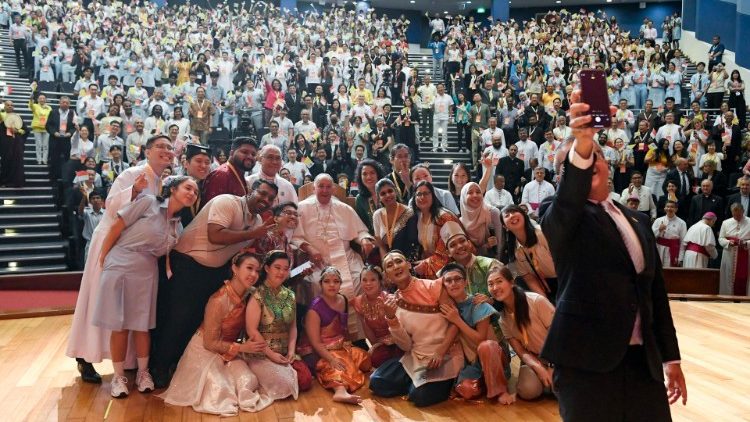
Even Fernando Casanova gets into the popemobile
Fernando Casanova was a Pentecostal Protestant pastor. He converted to Catholicism in 2003 and was a Catholic preacher in a very radical way for a long time, impassioning multitudes with his testimonies and truths of faith of the Catholic Church. But he could not abandon his Protestant dialectic. This Protestant absolutizes verses, removing them from all context. Casanova became an obsessive Catholic of biblical texts and the doctrine of the Church, joining Catholics who did him a lot of harm, because they were not able to invite him to know the God of love, beyond the Law. They gave him more of the same, but much more radical. They treat Pope Francis as a heretic, because of their inability to understand the contexts in which the Pope makes decisions.
A few weeks ago Casanova announced that he is leaving the Catholic Church to become a Lutheran. His obsession for the absolutization of biblical texts has led him to be in a constant and endless anguished search. But he who in recent years fiercely criticized the Pope, claiming that he was even “worse than a heretic,” now, as a Lutheran, gets into the popemobile of the “Francis of the contexts”, mentioning what before he would have fought against, affirming that “our religions are paths to God,” to justify what he does not need to justify. In the midst of a crisis, what was absolute becomes different, because one can now understand it in human, real contexts. And theology is always related to human life.
A theologian with closed thinking is mediocre
As Pope Francis affirms (1), in my opinion, in a very merciful way, philosophy and theology are only fruitful if we make use of them “with an open mind and on one’s knees. The theologian who is satisfied with his complete and conclusive thought is mediocre. The good theologian and philosopher has an open, that is, an incomplete, thought, always open to the ‘maius’ of God and of the truth, always in development… And the theologian who does not pray and who does not worship God ends up sunk in the most disgusting narcissism. And this is an ecclesiastical illness. The narcissism of theologians, of thinkers, is disgusting.”
Let us be attentive when we come across the thoughts of narcissistic theologians who dedicate themselves to the sad task of fighting the Pope by default. The Holy Spirit always takes care to provoke us to step out of our comfort zone and learn with humility. When we do not understand why the Pope said such and such a thing, let us humbly ask ourselves how the Holy Spirit wants to educate me through those words, instead of joining those who rejoice in challenging and fighting Him.
(1)- Address to theologians, April 10, 2014
Related
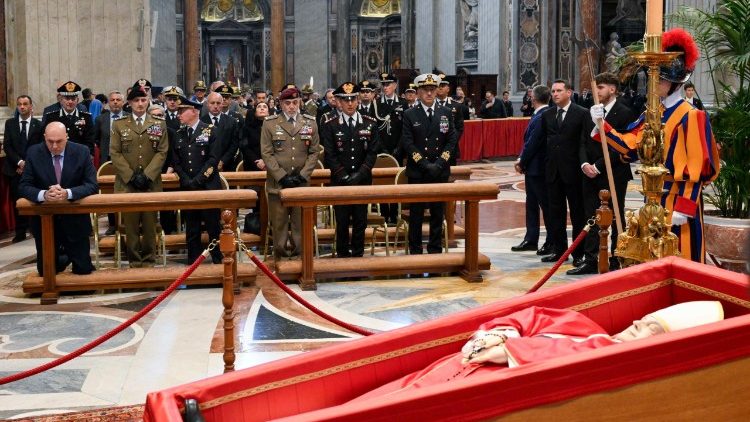
The heart of the Church beats between mourning and hope
Exaudi Staff
24 April, 2025
2 min
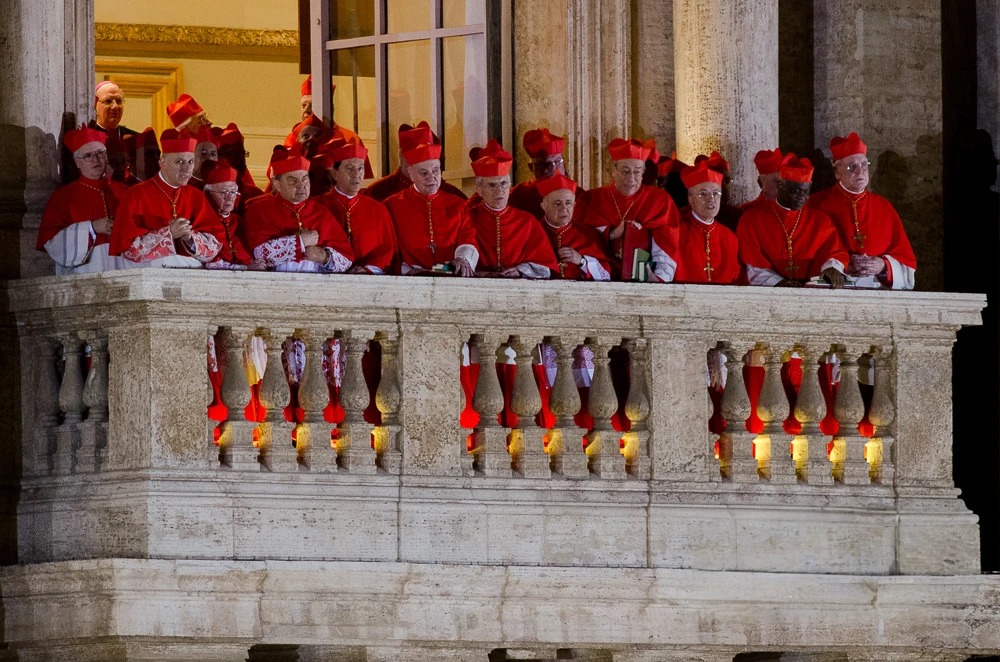
What is a Conclave? The Process That Elects the New Pope
Exaudi Staff
24 April, 2025
7 min

Current Status of the College of Cardinals
Exaudi Staff
23 April, 2025
14 min

The Challenges of the Next Pope and the Path of Grace
Javier Ferrer García
23 April, 2025
4 min
 (EN)
(EN)
 (ES)
(ES)
 (IT)
(IT)

